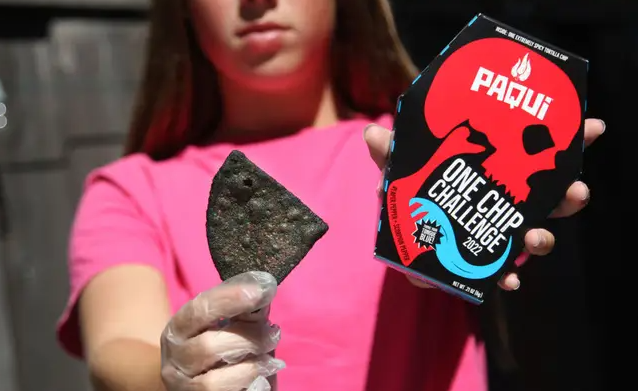Viral trends have become incredibly popular in the modern era. Occasionally, such as in the case of the ice bucket challenge, they serve noble purposes. However, at times, these challenges can pose significant risks. In a recent incident, a company has decided to withdraw one of its products from the market following the tragic death of a teenager.
In the latter part of August, a 14-year-old named Harris Wolobah tragically lost his life after engaging in the “One Chip Challenge.” During this challenge, the teenager consumed a chip manufactured by the company Paqui. This particular chip is individually packaged in a box and prominently indicates on its label that it is crafted using Naga Viper and Carolina Reaper peppers.
Lois Wolobah, the mother of Harris, recounted to the nearby CBS affiliate that she collected her son from Doherty Memorial High School in Worcester, Massachusetts, following a call from the school’s nurse. According to the nurse, her son had collapsed after consuming the spicy nacho chip.
Subsequently, upon returning home, Harris fainted once more. Concerned for his well-being, his parents rushed him to the emergency room, where tragically, he passed away at a later point.
Amos Wolobah, the father of Harris, indicated that to their knowledge, his son did not have any preexisting medical conditions. Harris’ parents are of the belief that the consumption of the chip may have played a role in his untimely passing, as he was a healthy young individual who actively participated in basketball before the sudden tragedy.
In response to the news of the teenager’s unfortunate demise, Paqui took action by removing its product from store shelves. The company cited an increasing number of instances where individuals, including children, disregarded the cautionary labels on their packaging. For instance, the company explicitly stated on its website that the “One Chip Challenge” was intended solely for adults.
The chip’s packaging features prominent warning labels, cautioning against its consumption by children, individuals sensitive to spicy foods, those with food allergies, pregnant individuals, or those with underlying health conditions.
Following Harris’ tragic passing, a post-mortem examination was conducted, but it is expected that the findings will not be available for several weeks. The National Capital Poison Center issued a cautionary statement, emphasizing that food products containing capsaicin, the substance responsible for the spiciness of chili peppers, have the potential to inflict harm to the esophagus and, in severe cases, may even lead to heart-related complications such as heart attacks.








